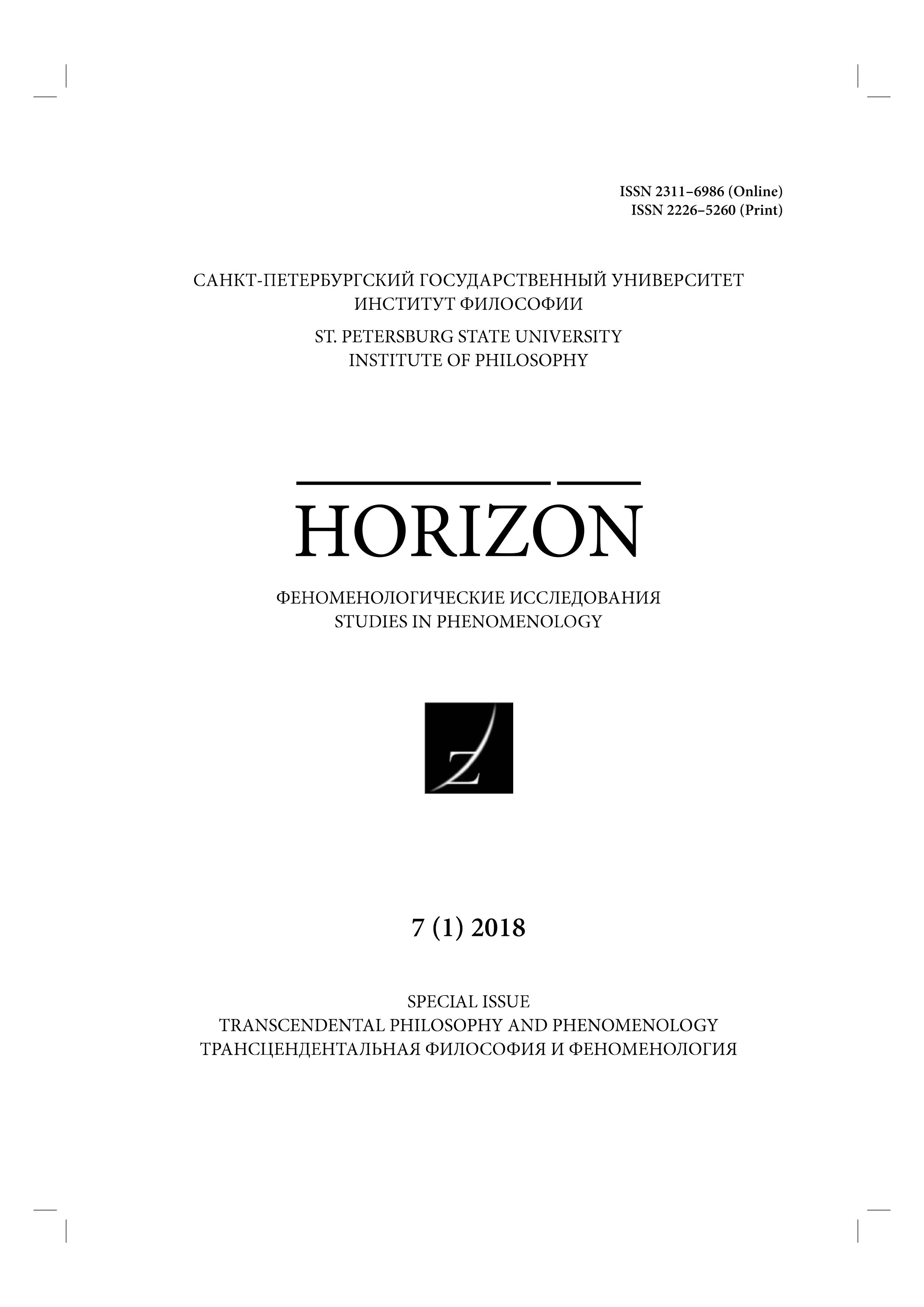THE MATERIAL RESIDUE.
KANT AND HUSSERL ON AN ASPECT OF THE TRANSCENDENTAL FOUNDATION OF THE SCIENCE OF NATURE
THE MATERIAL RESIDUE.
KANT AND HUSSERL ON AN ASPECT OF THE TRANSCENDENTAL FOUNDATION OF THE SCIENCE OF NATURE
Author(s): FRANCESCO PISANOSubject(s): German Idealism, Phenomenology
Published by: Издательство Санкт-Петербургского государственного университета
Keywords: Phenomenology; transcendental philosophy; philosophy of science; science of nature; a priori; living present; Kant; Husserl
Summary/Abstract: Husserl’s late claim of that transcendental logic is self-founded stands in a puzzling relation with the facticity of nature. This relation concerns issues such as the traceableness of a “living present” in the immanence of living consciousness. The article considers this matter through a specific perspective, gained by reference to the project of a transcendental foundation of the science of nature. This project requires the problematic possibility of a formal determination of facticity. One could characterize the phenomenological finding of a “living present” as Husserl’s attempt to resolve the discrepancy between fact and form in a “living being” which consists of both actual materiality and transcendental ideality. This conciliatory solution remains questionable, given the impossibility to provide an a priori foundation of this synthetic moment through the self-reflexive movement of transcendental logic. However, the systematic project of transcendental phenomenology as such entails the question concerning the a priori foundation of our ordinary knowledge of facts. It seems, then, to require a solution of this sort. The problem of grounding the scientific knowledge of natural facts dates back at least to Aristotle’s Posterior Analytics. So does the need for the definition of an empirical moment of this grounding. A discussion of Kant’s Metaphysische Anfangsgründe der Naturwissenschaft presents an aporetic facet of the way in which transcendental philosophy responds to this need. An analogous impasse occurs in Husserl’s mature work. The concept of “living present” holds a central role in defining Husserl’s stance towards this stalemate. The analysis of this role aims to clarify both Husserl’s specific position in the broader context of transcendental philosophy, and an aspect of the transcendental foundation of the science of nature. I conclude that this foundation must encompass a factual, non-formalizable element: a material residue, required in order to complete its reflexive movement.
Journal: Horizon. Феноменологические исследования
- Issue Year: 7/2018
- Issue No: 1
- Page Range: 98-120
- Page Count: 23
- Language: English

